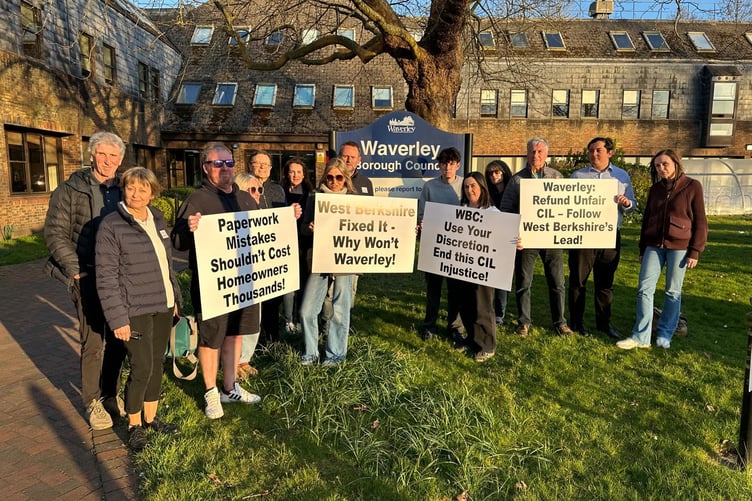Homeowners charged exorbitant planning fees for minor extensions may soon have a way out after “vital prep work” took place for a formal review – but for some it can not come soon enough.
Waverley Borough Council found itself at the centre of a CIL storm when dozens of people were hit with large surprise infrastructure fees after completing work on their homes – because they failed to tick the correct boxes in the authority’s paperwork.
Traditionally, these fees are for large scale developers to offset the impact new housing schemes on an area. But homeowners have been finding themselves being slapped with huge bills as well.
It has left some facing the threat of court action, repossessions, and imprisonment with others saying they’ve been forced to put their properties on the market.
Desperate, residents began pleading with the council to return the charges only to be told there was no money available – and that in all cases the charges were applied correctly.
Anger intensified after it emerged in some cases errors had been made – and then exploded when the council confirmed it was sitting on the cash and using the interest to balance its own books.
The Waverley Conservative group say the council has so far used £2.9 million of interest income from unspent developer charges.
Councillor Jane Austin, leader of the opposition group said: “Interest earned on CIL and S106 funds has quietly become a hidden revenue stream for the council.
She added: “Residents want this money spent on infrastructure, not left to accumulate interest to support the council’s day-to- day operations.”
Cllr Peter Martin (Conservative; Godalming Holloway) added: “This is not just poor financial management—it is morally questionable.”
The council disputes this total figure and says it is well within the law to use different income streams for its general fund. Further muddying the picture is that the charging system they are trying to unknot was introduced in 2018 under the previous administration.
Concrete details about any changes to CIL are expected to be brought to the council’s executive committee on July 1 but it is expected to include a review of the original rationale, the introduction of an exceptional circumstances policy, the legal implications of withdrawing CIL liability notices, as well as broader reforms.
Cllr Liz Townsend, Waverley Borough Council’s portfolio holder for planning and economic development, said:: “This is not the main event – but vital prep work. This is a really important step in ensuring that our approach to CIL continues to support sustainable development and fund essential local infrastructure, fairly proportionally and in a way that reflects growing public interest in the matter.”
She added: “We know that the Community Infrastructure Levy legislation has been a source of stress and concern for some of our residents who believe they have been unjustly charged and unfairly penalised by these complex and inflexible rules.
“I want to assure them that we are absolutely committed to addressing those concerns through a fair and transparent review process. This is a new process for the council, and we have taken independent legal advice to ensure our approach is both robust and fair.”


.png?width=209&height=140&crop=209:145,smart&quality=75)


Comments
This article has no comments yet. Be the first to leave a comment.